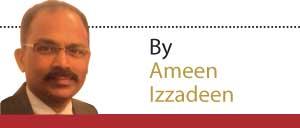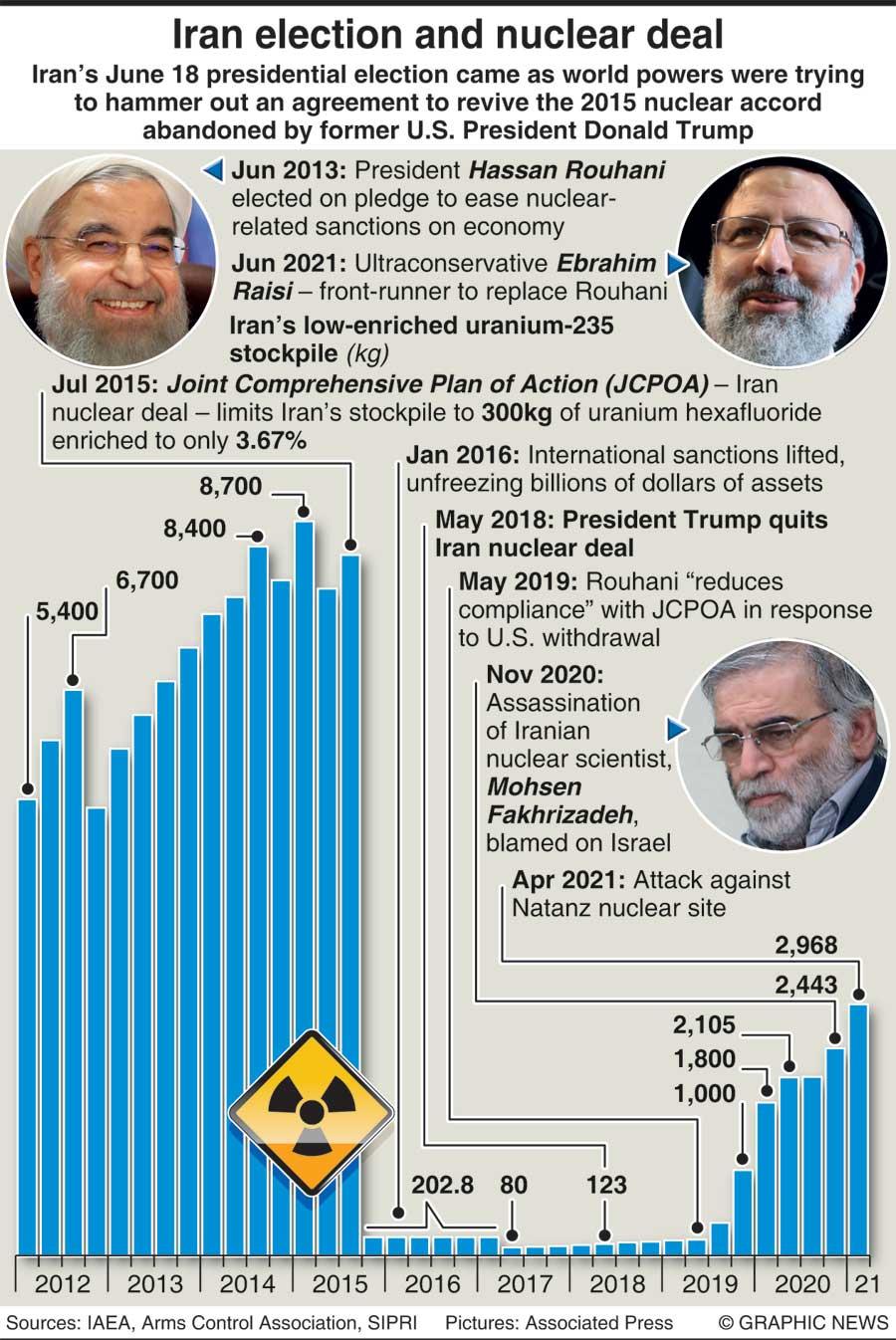Reply To:
Name - Reply Comment
However flawed the Iranian democracy is, it has been electing through universal adult franchise presidents and legislative assembly members since the 1979 Islamic revolution overthrew the monarchy backed by the so-called democracy-promoting liberal West.
legislative assembly members since the 1979 Islamic revolution overthrew the monarchy backed by the so-called democracy-promoting liberal West.
Although presidential and parliamentary election candidates are vetted by the Guardian Council in a process that undermines the free will of the people, the type of democracy that exists in this ancient land of continuity is still praiseworthy. For, the system is complete with checks and balances. At the apex of the power structure is the Supreme Leader who commands the armed forces, decides on defence and foreign policy issues, appoints the chief justice and confirms the presidential election results. But still he cannot be an autocrat or a despot, for it is an elected Assembly of Experts that appoints him and also has the power to remove him. In the hierarchical power structure, each institution is checked by another.
Though the power structure may not conform to the separation of power doctrine practised in secular democracies, Iran’s Islamic democracy shines as an exception in a region where democracy is an anathema to many rulers or exists as a sham with elected institutions being servile to all powerful monarchs or military strongmen.
Last week’s Iranian presidential election attracted world attention not because of Iran’s democratic exercise, but because Iran is a key player in regional and global politics. At stake are the ongoing talks aimed at resurrecting the Iran nuclear deal and diplomatic moves to strike regional peace in conflict areas such as Yemen and Syria. Besides, Iran is also a key player in the global oil market. Oil prices could see a downward revision if the talks lead to the resurrection of the nuclear deal also known as the Joint Comprehensive Plan of Action (JCPOA).
In terms of the deal signed in 2015 by Iran and six world powers known as P5+1 – the United Nations Security Council’s five permanent members (the United States, Britain, France, Russia and China) and Germany – Teheran agreed to eliminate its medium enriched uranium and slash its enriched uranium stockpile by 98 percent while it was permitted to enrich uranium upto 3.67 percent for peaceful purposes. In return, the world powers agreed to lift economic sanctions on Iran.
However, the JCPOA suffered a major blow when the United States voters elected Donald Trump, a misfit, as a president in 2016. Described by many experts to be psychologically imbalanced, Trump had a fetish to undo every achievement of his predecessor Barack Obama, who he loved to hate.
So in 2017, he withdrew the US from the JCPOA and imposed harsher sanctions on Iran, virtually making it impossible for other signatories of the deal to keep to their treaty obligations without inviting US sanctions on them. Iran’s oil exports declined while its economy experienced a drastic downturn, with the Trump-era sanctions blocking Iran from gaining access to global finance. They even prevented Iran from buying medicine and equipment to cope with the COVID-19 pandemic. Yet, Iran, one of the worst affected by the pandemic, survived amid growing public discontent over economic hardships. Despite these challenges, Iran is still a forced to be reckoned with in the region and has produced its own covid vaccine, just as Cuba, another country which has been unfairly punished by US sanctions since 1962.
Trump’s action pleased Iran’s regional rivals Israel and Saudi-Arabia. With the change of administration in Washington in January this year, the new President, Joe Biden, despite his pro-Israeli credentials showed a willingness to resurrect the JCPOA, albeit with face-saving new conditions. Biden was Vice President when the Obama administration signed the deal in 2015.
Talks resumed in Vienna with the Biden administration upping the stakes linking its consent to Iran’s compromise on its ballistic missile programme and support for regional militias. It was when the parties were reaching some deal that Iran elected a new president last week.
For close Iran watchers, the change of presidency in Iran in no way signals a change of foreign policy. The JCPOA talks had the blessings of Iran’s supreme leader Ayatollah Ali Khamenei and the new President, Ebrahim Raisi, will continue the same policy on JCPOA and also will continue behind-the-scene talks with Saudi Arabia to end the conflict in Yemen.
In post-election interviews with the international media, Raisi, who earlier headed the country’s judiciary, made it clear he was for the JCPOA and tried to show he was not the hardliner as portrayed in the Western media. Raisi campaigned on an anti-corruption platform with pledges to alleviate the hardships the people were undergoing largely due to US sanctions. To do this, he needs the JCPOA.
Last week’s presidential election recorded the lowest voter turnout in Iran’s post-revolution history, indicating the growing public discontent over economic hardships, the urban youth’s displeasure over Iran’s conservatism and the public unhappiness over the manner in which the presidential candidates were vetted by the Guardian Council. Raisi and the Iranian leadership were not unaware of the ground realities. They are under mounting pressure to provide relief and meet the aspirations of the youth, who were born after the revolution.
To some extent, Iranian leaders have controlled the situation by stoking religio-nationalism, but this strategy has its limitations. Raisi’s main strategy appears to be to get the US sanctions lifted and then increase Iran’s oil revenue. Iran has the world’s fourth largest oil reserves. Despite US sanctions, it produces 2.43 million barrels a day – or just 3 percent of the world production. According to Iran’s oil minister Bijan Zanganeh, Iran can increase the daily output to 6.5 million barrels a day if the sanctions are lifted under a new JCPOA.
Not only Iran, even covid-hit developing nations which are unable to cope with the high oil prices pin their hopes on the new JCPOA. But Washington’s decision on Monday to seize Iran-linked news website domains, including the one which hosted the popular satellite television network Press TV, has caused some disturbance in the atmosphere conducive for the nuclear deal.
The US accused these domains of spreading disinformation. But channels such as Press TV with global reach are posing a challenge to the West-dominated media outlets, some of which have been, under the cover of freedom of expression, discreetly bombarding the rest of the world with warped news to shape the world opinion to suit the agenda of their political masters.
However, pressure from Israel could torpedo the JCPOA process and regional peace moves, with Israel’s new Prime Minister Naftali Bennet said to be more hardline than Benjamin Netanyahu. How the Biden administration will handle the pressure from Israel will determine the fate of the Middle East – not so much a new president in Iran.
